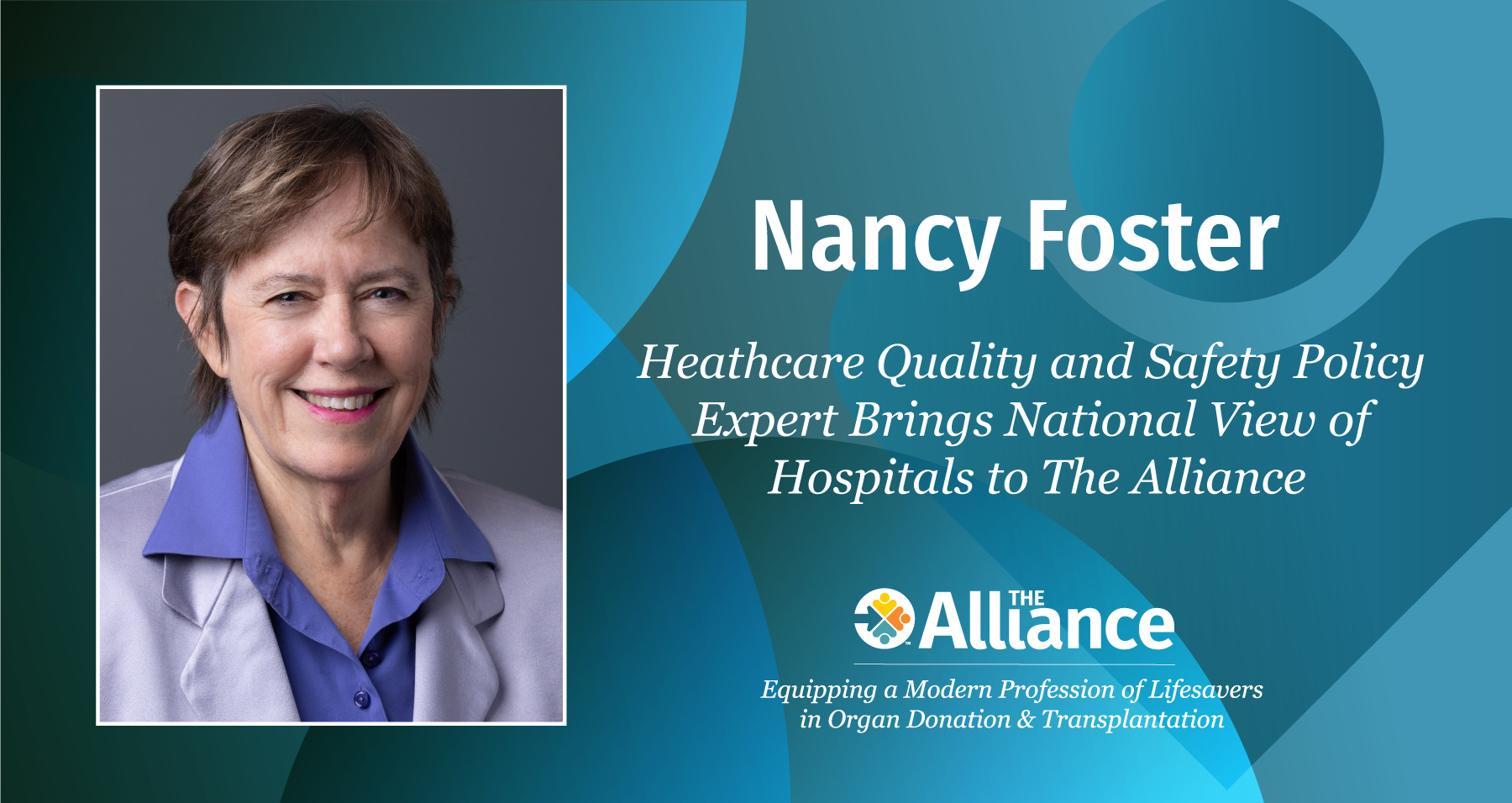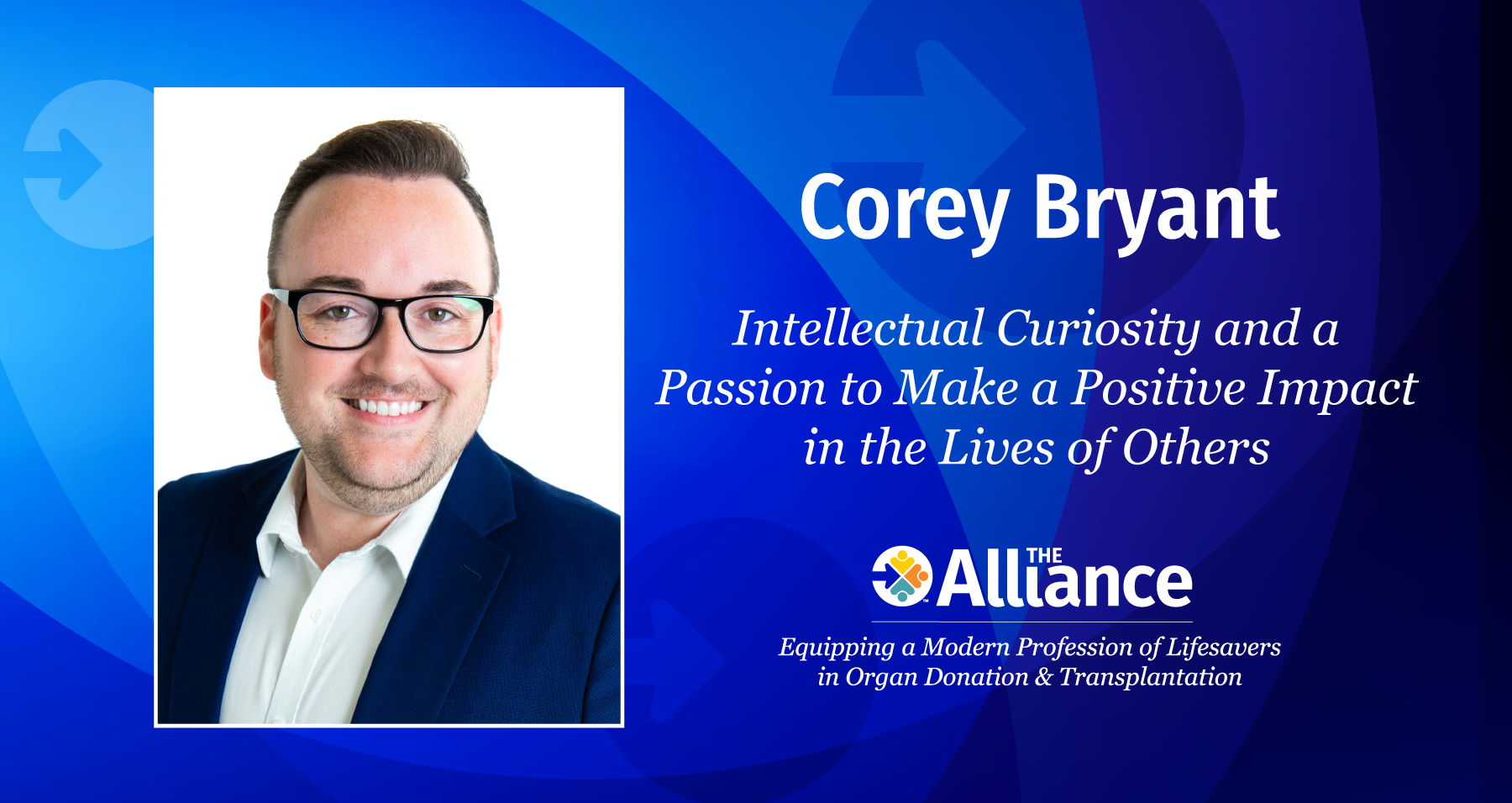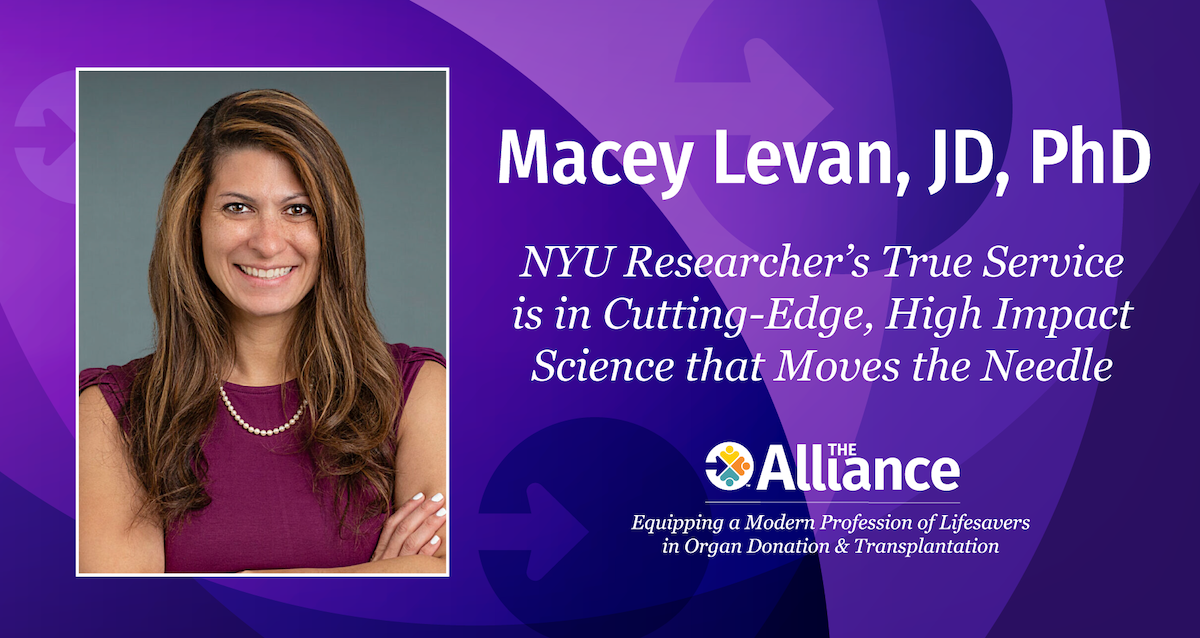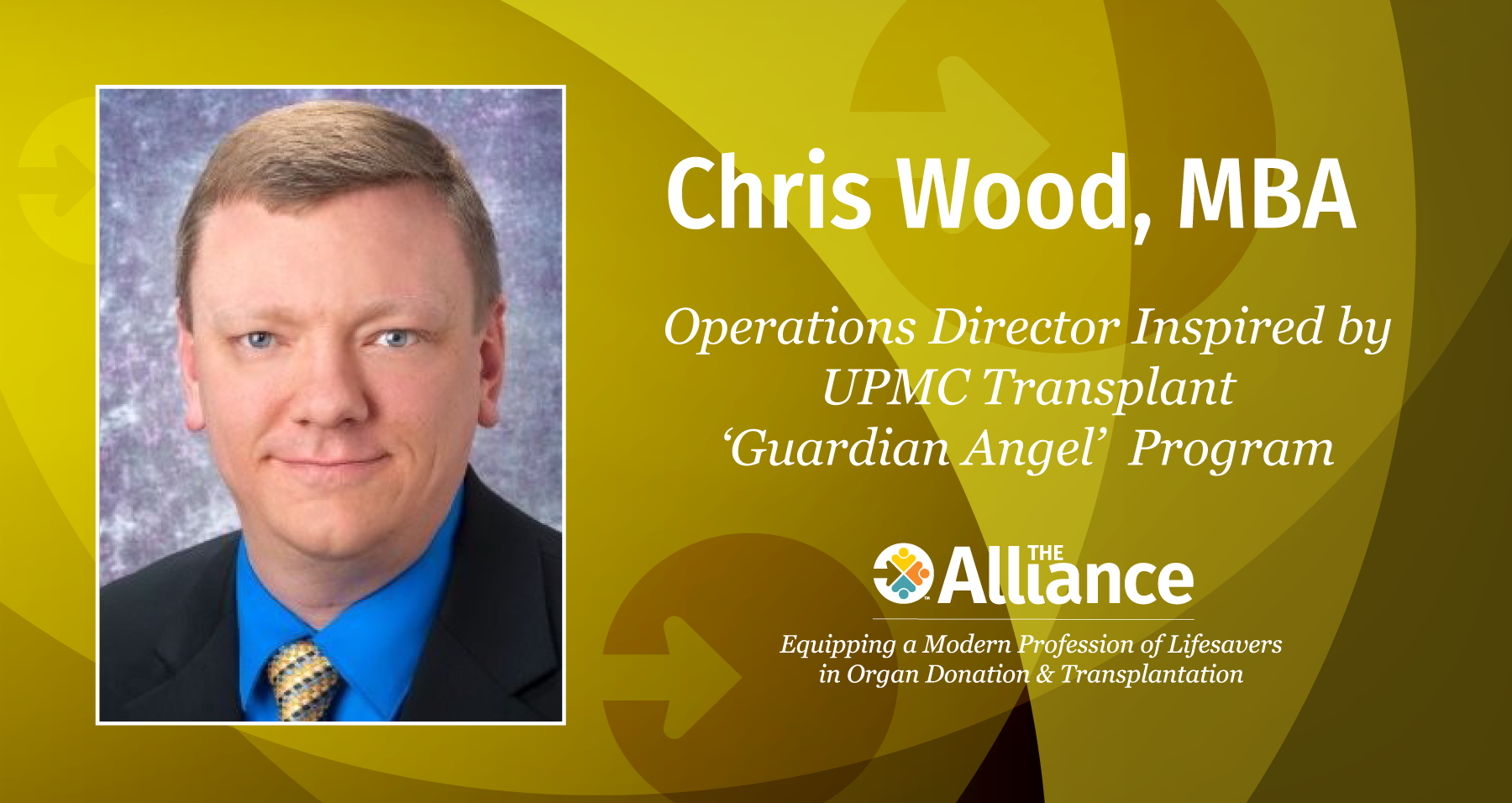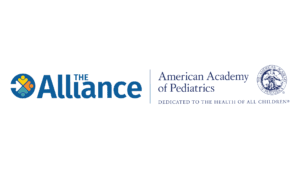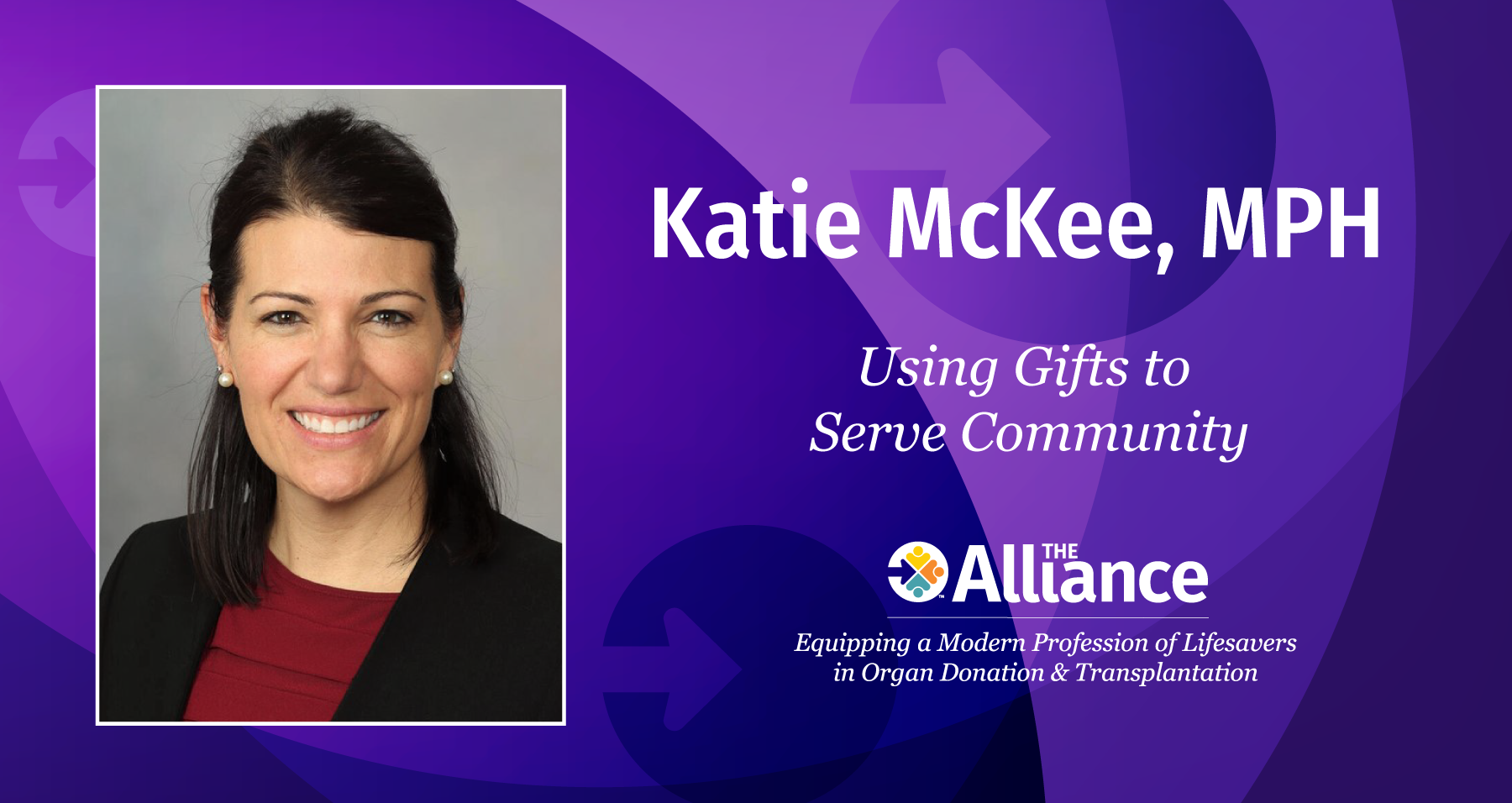With a broad understanding of major trends in healthcare, especially the current state of hospitals and what’s on the minds of hospital CEOs nationally, Nancy Foster brings that big-picture view to discussions of the Alliance for Organ Donation and Transplantation (The Alliance) Board of Directors, where she is serving her second three-year term.
She recently served on a panel at The Alliance’s 2022 National Critical Issues Forum: “Disruption in Healthcare: A Brief Exploration of the Recent Changes Impacting Donation and Transplantation.”
“I talked about the current state of hospitals and how that might affect transplantation or innovations in transplantation,” says Foster, who has been Vice President for Quality and Patient Safety Policy at the American Hospital Association (AHA) since 2004. “I talked about the stress that hospitals are under because of the pandemic, the workforce shortages, and the financial challenges that so many hospitals have emerging from the pandemic. The ability of hospitals to engage in activities now that would require a significant investment is pretty limited for most hospitals because they have so many other things they have to do just to keep the trains running.”
With her broad vantage point of hospital leadership nationally, she says was amazed at how well healthcare professionals got through the pandemic. ”I think the healthcare leaders who did the best were the leaders who had a style of connecting with people,” says Foster. “The folks who daily, or at least a couple of times a week, were out and about in their hospitals walking around. They were known to their staff. The most successful leaders were those who saw this as a team effort and that they were an intimate part of the team, but not necessarily calling all the plays.”
“One of the key lessons out of COVID that we need to embrace for all of healthcare going forward is that it is not a single organization that makes health care work in any community. It is the nursing homes and the dialysis centers and the hospitals and the rehab centers and individual physician offices. There are so many players involved in organ procurement and transplantation and so many people touch those lives that are involved in any particular donation. It really is a team sport.”
In her role at the AHA, she advocates for the nearly 5,000 hospitals and health system members of the American Hospital Association and shapes national policy on healthcare quality and safety. She leads efforts to improve quality and safety through collaboration with key national healthcare organizations; advises CMS on quality measures and their application in various public programs; works with the AHA Committees on Governance and Equity of Care; collaborates with experts to translate safety research into improved policies and practices; and coordinates with leaders working on information technology, workforce development, organizational culture, and other issues affecting the quality of care
“I love the fact that The Alliance brings together the folks from the organ procurement world with the transplant surgeons and with other critical entities, such as the Joint Commission and others that have a role,” said Foster. “We’re taking on issues of significance and trying to address them by bringing people together in the National Critical Issues Forum and in other sessions to talk about those important clinical or operational challenges that are impediments to success in the transplant world as well as critical issues that also represent opportunities for transplantation to move forward in very important ways but require some careful thinking and planning.”
Benefits from Incredible Mentors and Being a Mentor
Foster attributes her success to several ‘incredible’ mentors, including the late John Eisenberg, MD, who directed the Agency for Healthcare Research and Quality; Gregg S Meyer, one of the top leaders at Mass General Brigham Health System; and her first employer, Sister Katherine, a nun at the New Jersey Department of Health. “She was an incredible force and taught me a lot about not going along to get along but about sticking true to your principles and bringing people along with wisdom around what are the right things to do, what are the important things to do?”
Foster, served as the coordinator for quality improvement activities at the Agency for Healthcare Research and Quality from 1997-2002 where Eisenberg was the director until his death in 2002. “John always referred to himself as a turtle on a fence post–that if you see a turtle on a fence post, you can count on the fact that he/she didn’t get there by him/herself. He always talked about learning from others, and he was a master at that. He would talk to everyone he came in contact with. He was famous for bringing back quotes about health care from cab drivers that he had talked to.”
Foster also has a commitment to mentoring others. “I just want to make sure other people benefit in some way from what I’ve learned and if I can be a part of that or if I can link them to a mentor who can be, that’s just a great joy.”
Long-time Passion for Organ Donation and Transplantation
Foster joined The Alliance’s Board four years ago when she was appointed by the AHA. “I have had a passion for organ transplantation for a long time,” says Foster. “I think it is an incredibly important and under-noticed aspect of health care. The thought of being able to ease a number of other people’s pain by donating an organ, that frankly you no longer need, has been something that I thought was just the ultimate, most important gift people could ever give for themselves or a family member. I really wanted to be part of this work to support the incredibly important work of encouraging organ donation and making it happen effectively.”
Her first exposure to organ donation came when she was a volunteer at the University of Nebraska Hospitals while in high school. “I remember talking to some medical students about organ donation and what it meant,” she says. “There was something in those conversations that really drove home to me how this was a way a normal human being could save other people’s lives. And that seemed pretty incredible to me. I’d always been impressed by the ability of doctors and nurses and other healthcare professionals to do so. But for someone like me who wasn’t one, that was really important.”
Foster grew up in Omaha, Nebraska with an older and younger brother. She credits her upbringing with preparing her to deal with the pressures and stresses that the COVID Pandemic brought to her work with hospitals nationally. “My parents always set high expectations for both me and my brothers. They’d give you support and advice to help you, but they expected you to do it and to do it in a way that didn’t include a lot of histrionics.”
Her neighborhood playmates consisted of 13 boys and 2 girls. ”I played football and baseball with boys. There’s no crying in that situation. All of that was good preparation for just knowing that if you didn’t stay calm things actually got worse. It would become harder to make things happen and to effectively get things done.”
After high school, she majored in economics at Princeton University.
Foster’s husband, Stuart, was an active-duty naval officer for 21 years. When he retired, he became a stay-at-home Dad for their son who is now in his mid-20s and lives in New York City. Most weekends find the Fosters getting together with friends in their Silver Spring, MD neighborhood, where they also enjoy taking long walks. “We have pretty calm, neighborhood-oriented, very relaxing weekends after a pretty intense week at work,” says Foster.
Foster was recently inducted into the Hall of Fame at her high school alma mater, Benson High School, in Omaha. “It was such an honor,” says Foster. “It was your hometown saying, ‘Hey, we’re proud of what you’ve been able to do.’ And that was great.”
Foster had to give a seven-minute speech at the event. “It was an opportunity to point out some of the basics that I’d learned in high school that were so critically important to my success,” she says.” When I was in high school, I thought I was going to be a doctor. So I took a lot of science. But what was really important to me is that I was in speech, and I was in drama. It took away my stage fear. It enabled me to be a speaker who could thoughtfully present information to policymakers, congressional staff, congressional leaders, and medical leaders. I loved math, and I had some great math teachers. I thanked them as well.”




